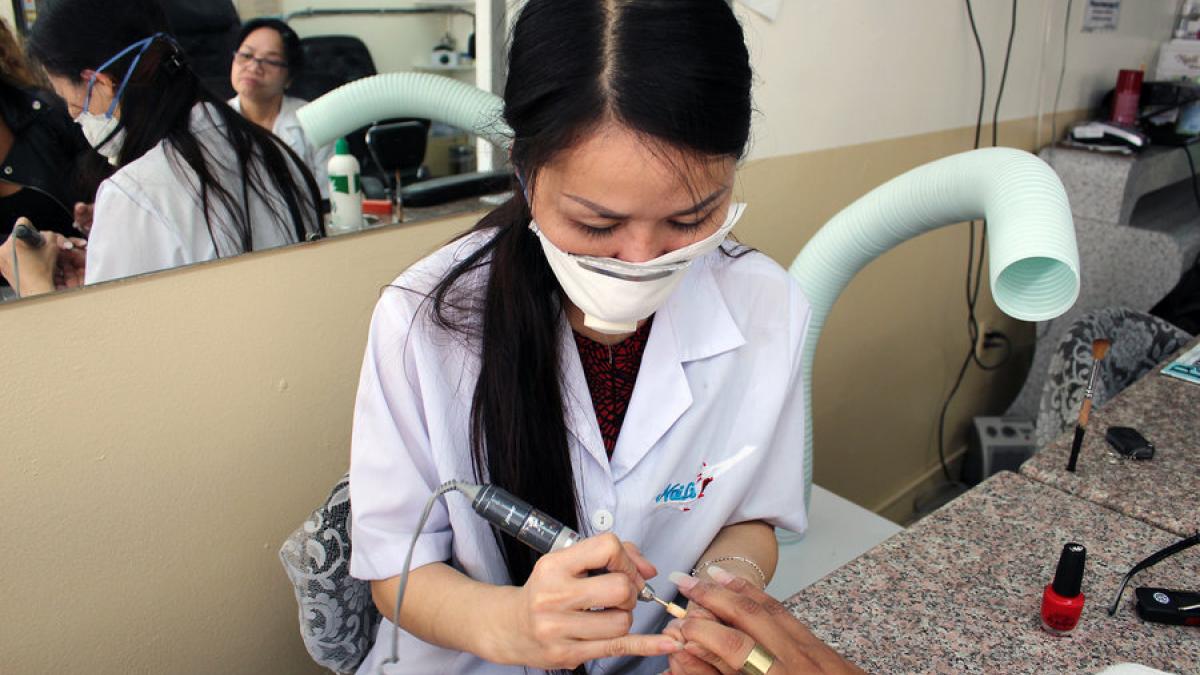
Tuesday, January 18, 2011
The popularity of manis and pedis are on the rise, but as the demand for salon services grows little attention is being paid to the health of the salon workers. The chemicals workers com in contact with on a daily basis have limited federal regulation, and little guidance is provided by companies on how to handle the products.
Three chemicals of concern, dubbed the “toxic trio”, toluene, formaldehyde and dibutyl phthalate (DBP) are common in nail salon products.
Toluene creates a smooth finish across the nail and keeps the pigment from separating in the bottle, and is a common volatile solvent that can impact the central nervous system, cause irritation of the eyes, throat and lungs, and is also a possible reproductive toxin. Formaldehyde, a nail-hardening agent, is also a volatile chemical that evaporates into the air of salons and is known to cause cancer. Exposure to DBP, added to polishes to provide flexibility and a moisturizing sheen, can affect thyroid function and has been linked to reproductive problems.
The good news is that nail salon workers, owners, and scientists are coming together to reduce occupational exposures to these chemicals. Even some large manufacturers have begun to reformulate their products without the use of the toxic trio.
For more information visit The National Healthy Nail Salon Alliance.




